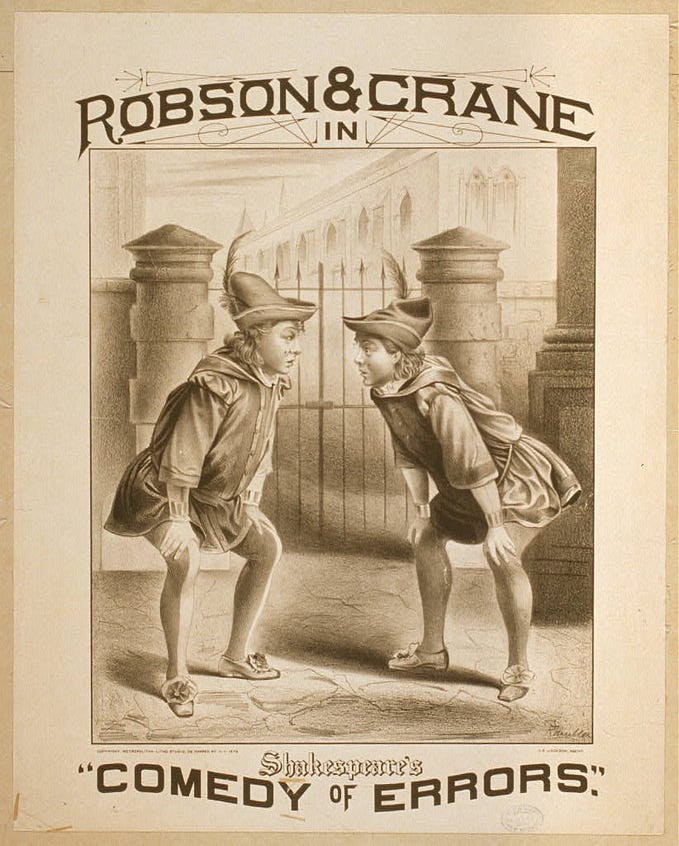Both Sides
The tech press v. the tech insiders
I cannot believe I missed this past weekend’s Bitchmeme,¹ especially since it’s right in my wheelhouse: the ever-chilling war between the press and insiders. It seems to me this is likely a normal state of being in every industry. But it becomes far more pronounced as said industry grows in power and import. And so here we are in the tech industry in 2020.
This is my wheelhouse because I have been both a part of the press and, more recently, an insider. Well, as “insider” as a VC can be. This varies pretty wildly, in my experience. But I digress. Point is: I may have an interesting vantage point here having been on both sides. You decide.
So when I read Hunter’s post seemingly walking straight down the middle of those two sides, my instinct was to find this approach too vanilla. Surely some side is worse here, right?²
But the more I think about it and debate it in my head, I do think the equivalent of the NYT endorsement is warranted here.
The press is both overzealous in a lot of coverage of the tech industry, and yet also not zealous enough. In a vacuum, it should come down to focal points. Is the press focused on the right things to be covering? But you simply can’t paint with such a wide brush here. At times, yes.³ At other times, no.⁴
That is, of course, my opinion. But it’s also at least somewhat of an informed opinion. The real issue remains information asymmetry. That is, the people with information not only don’t want to share it, more often than not, they’re directly incentivized not to share it.
At the same time, it’s a reporter’s job to get such information. But the secondary issue here is actually worse than the primary one — and really, it should be the primary one: they don’t know what they should be looking for.⁵
On the flip side: there is a lot to look for. And I do mean a lot. Far more than is reported, of course. And that sounds like I’m shitting on the press, but really, I’m just trying to convey how hard that job is. Not only is the deck stacked against them, it’s a deck that’s being shuffled in a very particular way a million miles away.
And so, many stories and angles come out of leaks or sources — people who, again, should not be incentivized to talk about such things. So you have to figure out the motive and then once you do, figure out if that negates the story in ways big or small. It seems to me that such motives should clearly negate many stories. Yet don’t.⁶
Triangulation should be the friend here, but that’s hard work. Perhaps impossible. Again, see: people being disincentivized from talking.
But it’s not like the press is just going to acquiesce and only publish press releases. Nor should they. So round and round we go.
As tech has grown in importance, this merry go round has only gotten bigger. In fact, it’s now perhaps the biggest ride in town. Certainly it still has that new ride buzz. And I think the focus is and will remain warranted.
For far too long, a bunch of jokers got away with far too much because there wasn’t a press fully equipped to handle such situations. Forget knowing where to look, many folks weren’t looking at all. And so the public wasn’t. And so shenanigans are gonna shenanigan.
My sincere hope is that even if the press doesn’t always — or even most of the time — get it right, that the increased scrutiny and questions will slowly but surely force the ship to course correct. Fear has a funny way of doing that.
And so, to recap: the press has a nearly impossible job, but an important one, that has positive ramifications even if they don’t always (or even often!) get the story entirely right. Directionally accurate is often good enough. The insiders have gotten away with too much, for too long as puff pieces have only emboldened them. That needs to change with tech now fully transforming the world. And the press is a great change agent in this regard.⁷ But sometimes the stories are just wrong, or worse, stupid.⁸
See, both sides.
¹ That is, a way too insidery term to describe when the tech industry is talking about itself so as to cluster at or near the top of Techmeme.
² Alex Wilhelm makes some arguments that the press is more in the right, as is his wont, but I disagree with about half of it. Chris Anderson (also a both-sider) takes the other side, which I also half agree with.
³ The best journalists seem to have an instinct about what they should be covering. Part of that is undoubtedly access and connections built up over time, but it all starts with a good nose. And asking the right questions to the right people…
⁴ Hunter’s point on “Red Teaming” — that is, actively looking for any negative angle, or worse, actively prodding companies to find a flaw to write about — strikes me as a good one. Every single company has issues. The one you work at. The one I work at. The one everyone works at — including the press, of course. That’s why it’s important that the focus is on the right things to uncover. Spilling proverbial (or in some cases literal) ink on smaller issues wastes valuable time on both sides. And wears both sides down, over time.
⁵ Again, the best journalists have a better nose for this. But it’s why I’m also intrigued by people like Matt Levine, who writes the ‘Money Stuff’ newsletter for Bloomberg. He writes about the financial industry having come from the financial industry. As a result, it’s clear in his writing that he knows what he’s talking about and what to look for. He’s not actually reporting necessarily, but his commentary is cutting thanks to this knowledge. And also hilarious.
⁶ Which is a whole other can of worms.
⁷ Certainly — hopefully? — better than regulation.
⁸ Yes, stupid can be worse than wrong. It comes down to intent.










